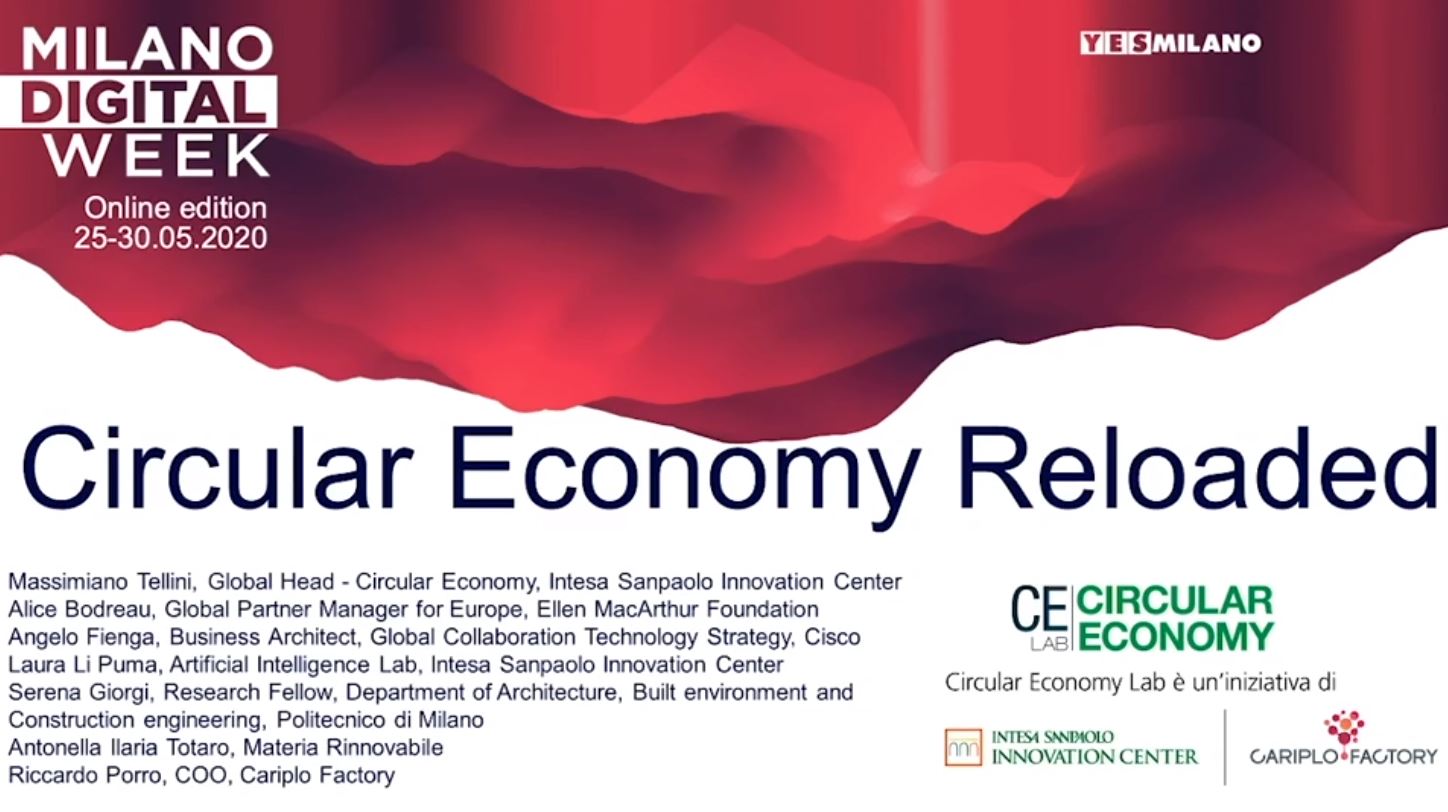
The role of digital transformation to relaunch the country through a circular economy
The Circular Economy is the value creation paradigm that aims to divide the development of businesses and territories from the consumption of exhaustible natural resources, capable of supporting the economy of a planet that will host 10 billion individuals by 2050. Digitization is a key factor in the transition to the circular model. After the Covid-19 emergency and the need to restart, how can the circular economy contribute to the creation of a more resilient, fair and safe world for economic and environmental systems?
Digital platforms, Artificial Intelligence, Internet of Things and Blockchain are already optimizing the design, production, consumption, reuse, repair, regeneration, recovery and end-of-life management of products. But, can digital transformation really accelerate the adoption of a future-proof paradigm? And what are the opportunities for companies?
These questions were the starting point for the Circular Economy Reloaded event. The role of digital transformation to relaunch the country through a circular economy, organized by the Circular Economy Lab, an initiative promoted by Cariplo Factory and Intesa Sanpaolo Innovation Center, on the occasion of the Milan Digital Week 2020.
The need to address this issue naturally arises from the historical moment we are experiencing. In a world where business development is deeply interconnected with the consumption of exhaustible natural resources, it is essential to develop solutions that can support the economy of a planet that will host 10 billion individuals in 2050.
Massimiano Tellini, Global Head Circular Economy of Intesa Sanpaolo, opened the event stating “the term Circular Economy Reloaded aims precisely to identify what is, today, an interesting perspective, which must be adopted to imagine an urban context transformed by digital technologies”.
In fact, digitization represents not only an enabling factor for the transition towards the circular model, but also a competitive advantage which, combined with know-how, research and innovation, sets in motion a real digital revolution.
In this sense, Laura Li Puma, Artificial Intelligence Lab, Intesa Sanpaolo Innovation Center, underlined how “it is important to support the transaction towards an ecosystem that takes into account the principles of the Circular Economy, but at the same time develop competence centers to increase the know-how necessary to evaluate new solutions, increasingly complex and multidisciplinary.”
The conference was concluded by Riccardo Porro, Chief Operating Officer of Cariplo Factory, with a reflection on the application of the principles of the Circular Economy in the industrial sector.
The sudden changes that Italy has experienced during the months of the pandemic have made the instability of the old business models, conceived from a globalization perspective, even more evident: in this scenario, the Circular Economy is an opportunity to embrace the innovation and to foster the change to which we are called to respond.